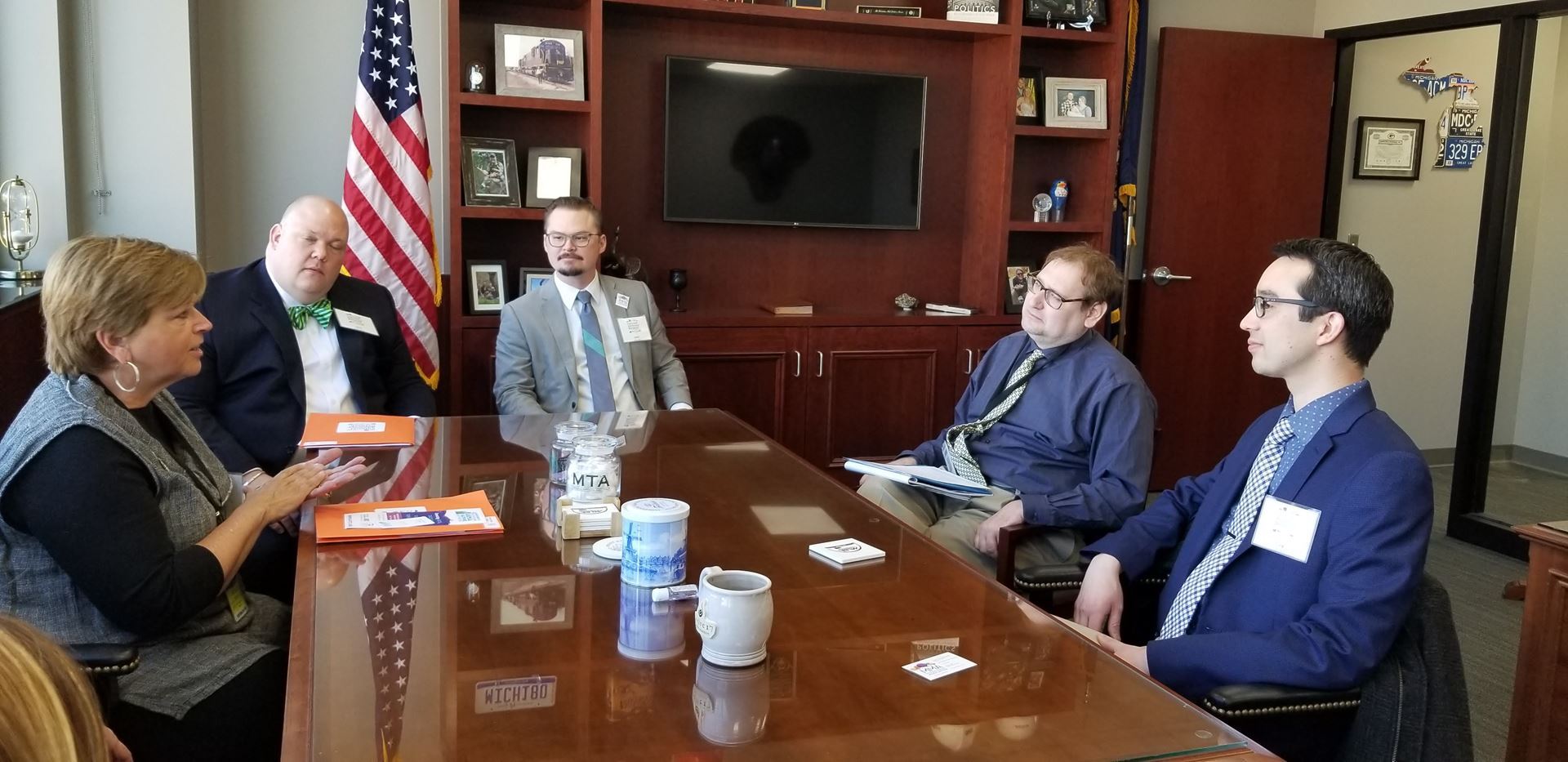Cultural advocacy network of michigan |

ADVOCACY 101: EMPOWERING MICHIGAN'S ARTS & CULTURE COMMUNITY
Advocacy is a powerful tool that allows individuals and organizations to influence policy, funding, and legislation. For Michigan’s arts and culture community, effective advocacy can ensure the vibrancy and sustainability of the sector. We spoke with Nate Love, a lobbyist with Kelly Cawthorne that represents the Cultural Advocacy Network of Michigan, to provide valuable insights into the art of advocacy and how it can make a difference.
Understanding Advocacy: A Two-Pronged Approach
Nate Love breaks down advocacy into two main categories: direct advocacy and grassroots advocacy. Both are crucial and complement each other.
- Direct Advocacy involves direct interaction with legislators, often facilitated by professionals like lobbyists. This approach includes drafting and passing bills, coordinating with stakeholders, and managing the logistics of legislative processes. As Love explains, “You might be helping [legislators] draft and pass bills... figuring out how we come to a consensus or a compromise and get this thing across the finish line.”
- Grassroots Advocacy, on the other hand, empowers everyday citizens to participate by writing, calling, or emailing their legislators, participating in advocacy days, or raising community awareness. Love emphasizes that grassroots efforts are often the catalyst for legislative action.
Both forms of advocacy are essential and work hand in hand. “I never want to say that one is more important than the other because both are very much important,” Love adds, underlining the complementary nature of these approaches.
The Power of Advocacy Days
Advocacy Days are an essential part of the advocacy toolkit. These events raise the profile of the arts and culture sector among the political community in Lansing. As Love notes, seeing 100 people at the Capitol for Arts and Culture Day sends a powerful message to legislators. “They know they’re all there for a specific day... it provides the chance to have some really good organic conversations.”
These days aren’t just about lobbying—they’re about community. Advocacy Days also offer invaluable networking opportunities, where advocates can meet like-minded individuals and share ideas. “It’s good networking right? You’re going to meet like-minded people... and now that whole world is getting opened up a little bit more for you.”
Building Relationships: The Heart of Advocacy
At its core, advocacy is about building relationships. Legislators need to hear from their constituents, and consistent, meaningful interactions make a lasting impact. Love points out that legislators’ jobs revolve around serving their constituents, so they are generally receptive to hearing from advocates. He also suggests taking advantage of opportunities to meet legislators in informal settings, like coffee hours, to start building those connections.
“They want to hear from you,” Love says. “Their whole job is centered around constituents... they should be happy to take the meeting and happy to hear from a constituent that has a problem because it means they can solve that problem.”
Storytelling: Making Your Case Real
While statistics and data are important, it’s the personal stories that often resonate most with legislators. Love emphasizes that storytelling makes the issues real for policymakers. By connecting funding or policy decisions to real-life impacts in their communities, advocates can make a compelling case. As he puts it, “People go to communities for jobs, but they stick around for arts and culture.”
Love also highlights the impact of telling legislators how their decisions directly affect local arts organizations. “When I have somebody come in and say we receive a grant that keeps our doors open in your community... suddenly, if this goes away, that means downtown gets a lot less interesting and is attracting a lot fewer people, which is going to have a lot of other economic impacts and ripple effects.”
Advocacy for Michigan’s Legislative Priorities
The Cultural Advocacy Network of Michigan has three key legislative priorities: increasing funding for the Michigan Arts and Culture Council (MACC), supporting Creative Arts Therapy bills, and expanding the Historic Preservation Tax Credit. Each of these initiatives relies on effective advocacy to succeed.
- Funding for MACC: With current funding levels far below the national average, increasing the budget to $30 million is critical for supporting Michigan’s arts and culture sector. Advocacy efforts need to highlight how this funding benefits local communities, education, and economic growth.
- Creative Arts Therapy: Licensing for creative arts therapists will expand access to essential mental health services in Michigan. Advocates should focus on the need for qualified professionals and the benefits of these therapies to diverse populations.
- Historic Preservation Tax Credit: Expanding the credit cap and eligibility will support the preservation of Michigan’s historic buildings, contributing to community identity and housing goals. Advocacy here should emphasize the economic and cultural importance of preserving these resources.
Advocacy is not just for professionals; it’s for everyone who cares about the future of arts and culture in Michigan. Whether through direct lobbying, grassroots efforts, or simply sharing your story, every action counts. As Nate Love reminds us, “It’s the stuff that you’re already doing that you don’t really think about.” By staying informed, building relationships, and making your voice heard, you can help shape the policies that will sustain and grow Michigan’s vibrant arts and culture community.
Written by Josh Holliday